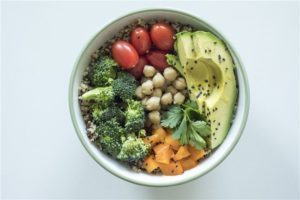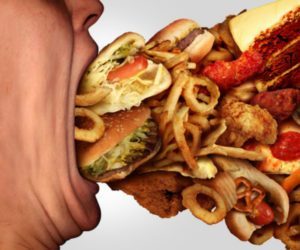Nourishment is of great importance for any living being, mainly humans, but good nutrition is also important. There are foods that various experts in nutrition have mentioned as essential for the healthy diet in an active lifestyle like that of professional and amateur athletes.
A child who usually practices a sport usually should eat more than one who spends all afternoon watching television, because when exercising he will burn more calories. But you have to keep in mind that each person is different when it comes to exercise and nourishment. Taking into consideration the daily schedule for meals, you should include all the nutrients required for good health.
The right foods and drinks can help you be a better athlete. An athlete must know how to choose the most appropriate moments in the day to eat foods that are rich in fat because these can slow the digestive process; therefore, you have to avoid them a few hours before and a few hours after exercising.
The diet and its components can sometimes be as important as the same training, that is why we are going to provide you with a list of several foods and tips that are ideal for athletes when it comes to healthy eating:
Fruits: apples, watermelon, pineapple, melon, kiwi, papaya, guanabana, zapote, avocado, peach, orange, grapefruit, lime, tangerine, guava, mango, pomegranate, mango, grape, strawberry, blackberry, raspberry, cherries.
Vegetables: carrot, lettuce, spinach, zucchini, celery, chard, cauliflower, tomato, cucumber.
Legumes:beans,chickpeas,lentils,soybeans,peanuts.
Food of animal origin: red meat, white meat, egg, milk, cheese, fish, yogurt, butter.
Cereals: corn, rice, wheat, oats, bread, pasta.
These kinds of foods should be consumed in sufficient quantities daily, 2 to 3 servings each.
We must remember that in order to obtain the nutrients that athletes need such as proteins, carbohydrates, vitamins, minerals, fats, which are of great importance since they provide a great source of energy and also tissue reconstruction and renewal when doing exercises.

All these types of foods give the athletes the necessary nutrients and in addition, the combinations of these can be made, it is important to point out that fruits, cereals, and vegetables should be consumed in abundance, legumes, and foods of animal origin in lesser quantity.
Do not forget to include nuts in the diet (peanuts, hazelnuts, pistachios, almonds) and oils (olive, corn, canola, sunflower) as well as sunflower seeds. It is very important to have a balanced diet with the aforementioned foods and avoid junk foods, fast foods, and saturated fats.
Junk food myth or reality in the diet of athletes.

Good nutrition is the indispensable motor of elite sports and junk food can spoil the athlete’s performance. Eating the right foods at the right time before a sporting event can help athletes have enough energy to compete at their highest levels.
Athletes should have their meals with less processed foods, they should eat as natural as possible, their health and performance will be better. It is not advisable to consume fried foods before exercise, the truth is that we should try to avoid them in general, but when we talk about sports they play a worse role, and that is because processed oils and fried products tend to be digested much slower than other types of fats, and a slow digestion in an athlete is counterproductive for any sports discipline.
On the other hand, a silent enemy of athletes is protein bars that are sweets disguised as health food. Some of these protein bars contain 8 grams of saturated fat, equivalent to that found in a cheese and ham sandwich. The vast majority of nutrition products on the market have large amounts of sugars. And because of the ease of eating this type of food (they are at hand, easy to carry everywhere, and because of their tasty flavors), many athletes consume them without knowing they are harmful at worst useless at best.
Energy drinks have also become very popular among athletes for obtaining energy as the name implies, offering a boost for those who consume it. And while the ordinary citizen uses it as an incentive for their daily activities, the athlete uses it to increase strength when training, but can not be relied upon exclusively, without the consumption of a balanced daily diet.
All these are effective and important recommendations for athletes to start seeing favorable results in their various disciplines.
